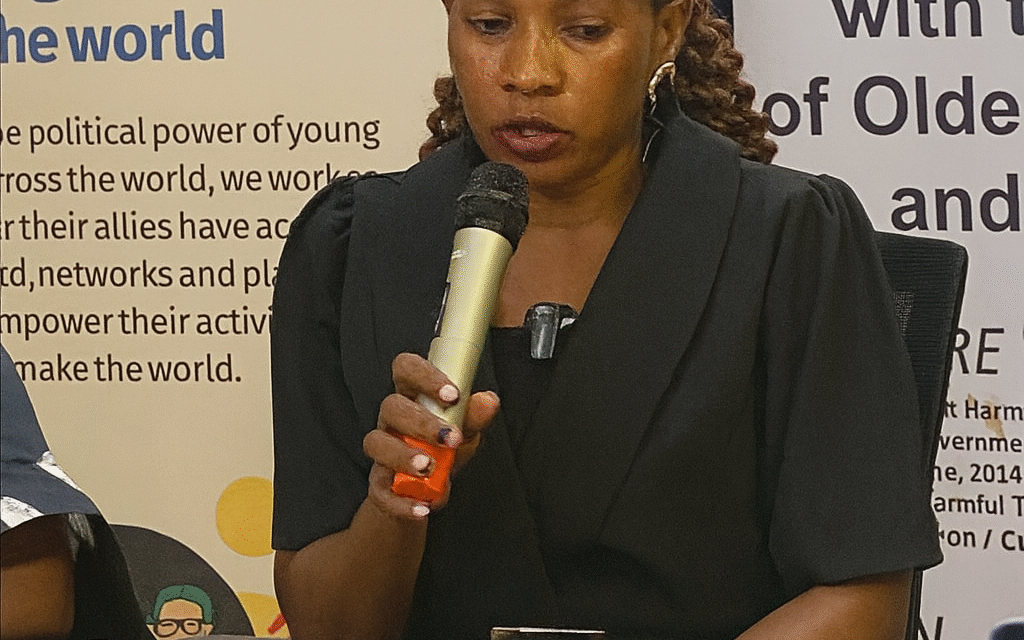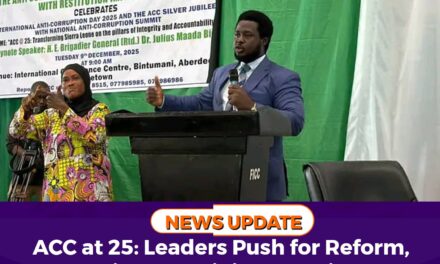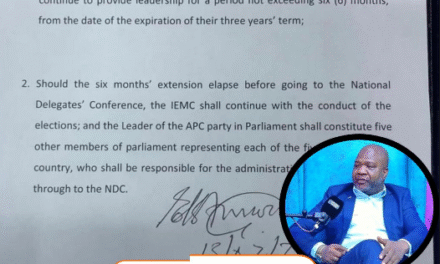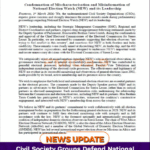By: Nafisatu Olayinka Deen
Freetown 17th September 2025 – For the first time since her traumatic experience in 2016, Kadijatu stood before a room of journalists, activists, and advocates to share her story. Her voice trembled, but her message was clear: “I was forcefully pinned down, beaten, blindfolded and cut without my consent.”
The press briefing, held on September 16, 2025, was organized by Purposeful and The Forum Against Harmful Practices (FAHP). It marked a pivotal moment, not just for Kadijatu, but for countless other women and girls who have endured Female Genital Mutilation (FGM) in silence.
Kadijatu’s ordeal began in Kondebutehun, Kenema, where she was subjected to FGM as punishment for failing to pay a fine imposed by a local sowei over a dispute with a neighbor. She was held for days without food, water, or medical care. It wasn’t until police, activists, and a journalist intervened that she was rescued.
“I was stitched over and again,” she recalled, tears streaming down her cheeks. The physical wounds were only part of the pain. Continued threats from soweis forced her into exile in Liberia for three years. With support from Purposeful and FAHP, she began therapy to confront the emotional scars.
Her story is not unique. As FAHP Chairperson Neneh Koroma noted, many girls and women have suffered similar fates, some fatally. Kadijatu, alongside Purposeful and FAHP, took her fight to the ECOWAS Court of Justice, which ruled that the Government of Sierra Leone had violated the rights of women and girls by failing to criminalize FGM. The court described the practice as “one of the worst forms of violence against women” and said that when intentionally inflicted, it meets the threshold for torture.
The ruling came in stark contrast to a recent parliamentary press release stating that the Child Rights Act does not criminalize FGM. “That statement made thousands of women bled,” said Josephine Kamara, Advocacy Director at Purposeful. “It sends a message to perpetrators that they are untouchable.”
When asked if she feels stigmatized, Kadijatu paused, took a deep breath, and said, “Yes. And that is why I am demanding justice, not only for me but for the other Kadijahs who don’t have a voice to speak up.”
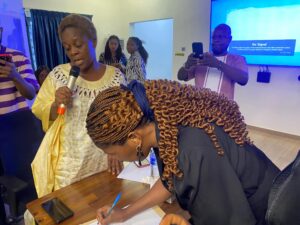
She ended her testimony by signing a petition to end FGM in Sierra Leone, calling on the government to act on the ECOWAS ruling and protect every woman and girl from this harmful practice.
